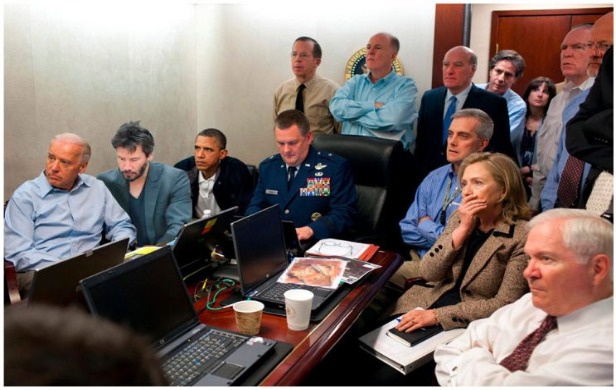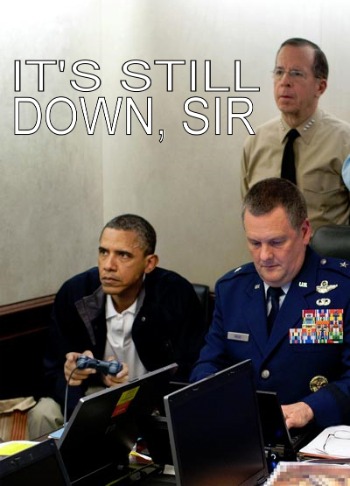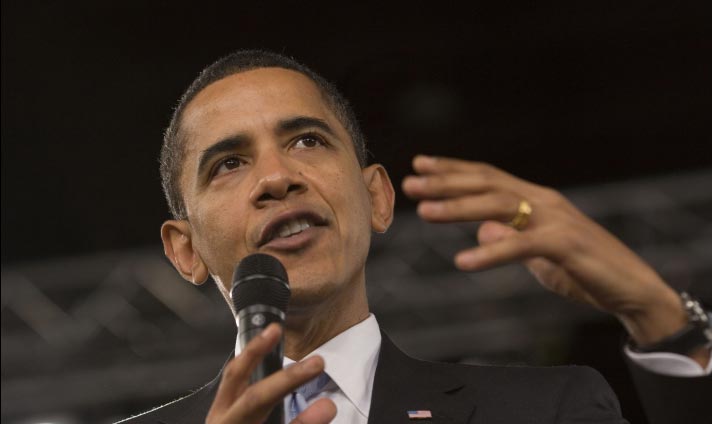This week BP successfully recapped its ruptured oil well in the Gulf of Mexico. Test results are favorable and show that oil and gas are, for the time being, confined. This news inspires cautious optimism in the hearts of residents and spectators alike. Online, however, the social effect continues to flow across social networks and social graphs, echoing anger, hope, and the demand for resolution and prevention from BP and the Obama administration.

If we were to look back and examine the extent of these online conversations and the associated sentiment related to this catastrophic event, we realize just how pervasive social networking is becoming to society. Social networks such as Twitter, Facebook, YouTube and Flickr served as primary media hubs for sharing pictures, videos, and information. And, studying this activity could yield an ocean of insight.
If one social community represented a repository of collective consciousness for study today, there is no need to look beyond Twitter.
Twitter as a Human Seismograph
Twitter recently reported 105 million registered users with 190 million monthly page views. Whatever the actual user count is and how many of those users actually Tweet vs. solely consume content, it’s clear that the public stream and the oceans of conversations it feeds is the Web’s most important database of collective consciousness.
Our voices and our thoughts form much more than trends and trending topics, when assembled, they reveal raw human sentiment, perception and also indicate the responses and actions that materialize as a result. What was once purely a human seismograph for measuring events and reactions has now evolved into a vibrant society where the united intelligence that’s available to us both historically and in real-time is greater than the sum of its conversational parts. If Twitter were the United Nations, its representatives would span the globe and rank 11th in terms of overall population, just behind Mexico and just ahead of the Philippines. Needless to say, the communication and connections that power the Twitterverse are indeed representative of a universal culture.
Study: Evolving Sentiment Towards Obama and BP
Working with PeopleBrowsr, we focused our research on the U.S. Gulf oil crisis, one of the most important stories dominating the news, our hearts and minds, and now history books. While emotions, opinions, and hope run deep, this report will focus on the state of human sentiment as defined by public conversations on Twitter.
The goal of this report was to surface and spotlight views and feelings as they evolved over time. Concurrently, we set out to demonstrate perception vs. actuality by separating the developing attitudes that defined the state of Obama and BP over the course of several months.
To align our calendars, the BP oil spill was first reported on April 20th, 2010 as a result of Deepwater Horizon drilling rig explosion that killed 11 platform workers and injured 17 others.
This study examines sentiment dating back to March 2010 and continues into June 2010.
It’s important to consider in this analysis that we viewed all conversations related to the White House and Obama as a whole and not isolated by the oil spill specifically. We did so to demonstrate the Gulf’s impact on White House sentiment as it became clear that the explosion was much more than an unfortunate incident. Also, the following sentiment data is the result of human sorted tweets that were randomly sampled over time.
Sentiment: Obama
Using Twitter as a micro approval indicator, the BP oil spill does not appear to be “Obama’s Katrina.” Based on the data reviewed thus far, Obama’s public approval doesn’t seem to indicate the intense backlash shortly following Katrina.
Between March and June 2010 (98 days), Obama and the White House was the subject of over 2.5 million tweets. Of that, an estimated 213,000 were specifically related to the BP oil spill. And over the course over those three-plus months, sentiment averaged 64.55% neutral, 28.5% negative and 7% positive.

Sentiment: BP
Applying the same lens to BP, total conversations tied to BP and the oil spill between March and June 2010 (98 days) skyrocketed to an approximated 1.1 million tweets. Of those conversations, 59.06% were deemed negative with an additional 8.98% categorized as very negative. 28.20% of those tweets remained neutral and believe it or not, 3.14% were viewed as positive.

Sentiment: Comparing BP and Obama Over Three Months
Positive: Starting with positive sentiment, the nosedive for both is grave. Doubts for resolution and swift response caused the lack of public support for both Obama and BP and ultimately shifted towards sharp criticism and deafening cries for action and resolution.
Prior to the oil spill, BP was perched at its apex of positive sentiment. As the attempts to cap the gushing well failed, sentiment plunged 61.5% over three months. Obama also fell 63.3% from its high in March to a three month low.

Neutral: When either negative or positive conversations increase, it’s usually at the expense of indifferent banter. As expected, BP conversations hurtled by 53.39% between March and May. On the other hand, Tweets related to Obama and the White House actually increased over the course of 90 days by 24.9%.
Negative: When reviewing negative sentiment related to BP, there’s a reason the term hockey stick is used when referring to graphs. In March, BP was already the subject of negative commentary; however, after the explosion, critical conversations skyrocketed 107.05%, representing a devastating vertical spike in antipathetic public opinion.
On the contrary however, unfavorable Tweets related to Obama practically remained constant, declining a bit by 1.29%.

The average sentiment comparing BP and Obama eerily aligned, indicating that from a public perception standpoint, proactive leadership and resolution is critical.

March

April

May/June

Hashtags
Hashtags were originally introduced into the Twitter stream by Chris Messina as a way of categorizing conversations by topic and theme. Over time however, the role of hashtags expanded beyond classification to now also convey emotion or observation. For example, conversations related to the oil spill include hashtags as sentiment or for conveying implicit messages such as “I can’t believe the BP oil well is still gushing #IhateBP!” and “The BP oil spill represents why offshore drilling should be banned #helpsavethegulf.”
Tweets populated with references and messages conveyed through hashtags were overflowing and for the purpose of this report, we focused on spotlighting only those densely tied to the event as well as President Obama.
To demonstrate the extent of these particular hashtag references, we visualized them through an overlay graph dating back to the beginning of the year and running through the end of June.
The number of Tweets including the following hashtags between April 20th and June 30th demonstrate only a sample of all oil spill related conversations, but offer a glimpse of the role hashtags play in this unique forum.
Total Hashtag References: April 20 – June 30, 2010
#oilspill = 438,926
#gulf = 35,225
#obama = 92,430
#bp = 225,365

Gallup: President Obama Job Approval
Reviewing President Obama’s Job Approval at Gallup, we can visualize a steady decline in approval and rise in disapproval with 47% and 46% respectively.

For Obama advisors as well as those on his communications team, a month-by-month comparison of the erosion of BP and White House sentiment screams for decisive action.
Comments


















 "Jeff Immelt and I started our careers together at Proctor & Gamble, and I have enormous respect for the success he’s had at GE. He is an ideal business leader to chair the President’s Council on Jobs and Competitiveness and help drive a focus on what we can all do to increase American competitiveness and create new jobs."
"Jeff Immelt and I started our careers together at Proctor & Gamble, and I have enormous respect for the success he’s had at GE. He is an ideal business leader to chair the President’s Council on Jobs and Competitiveness and help drive a focus on what we can all do to increase American competitiveness and create new jobs." 









